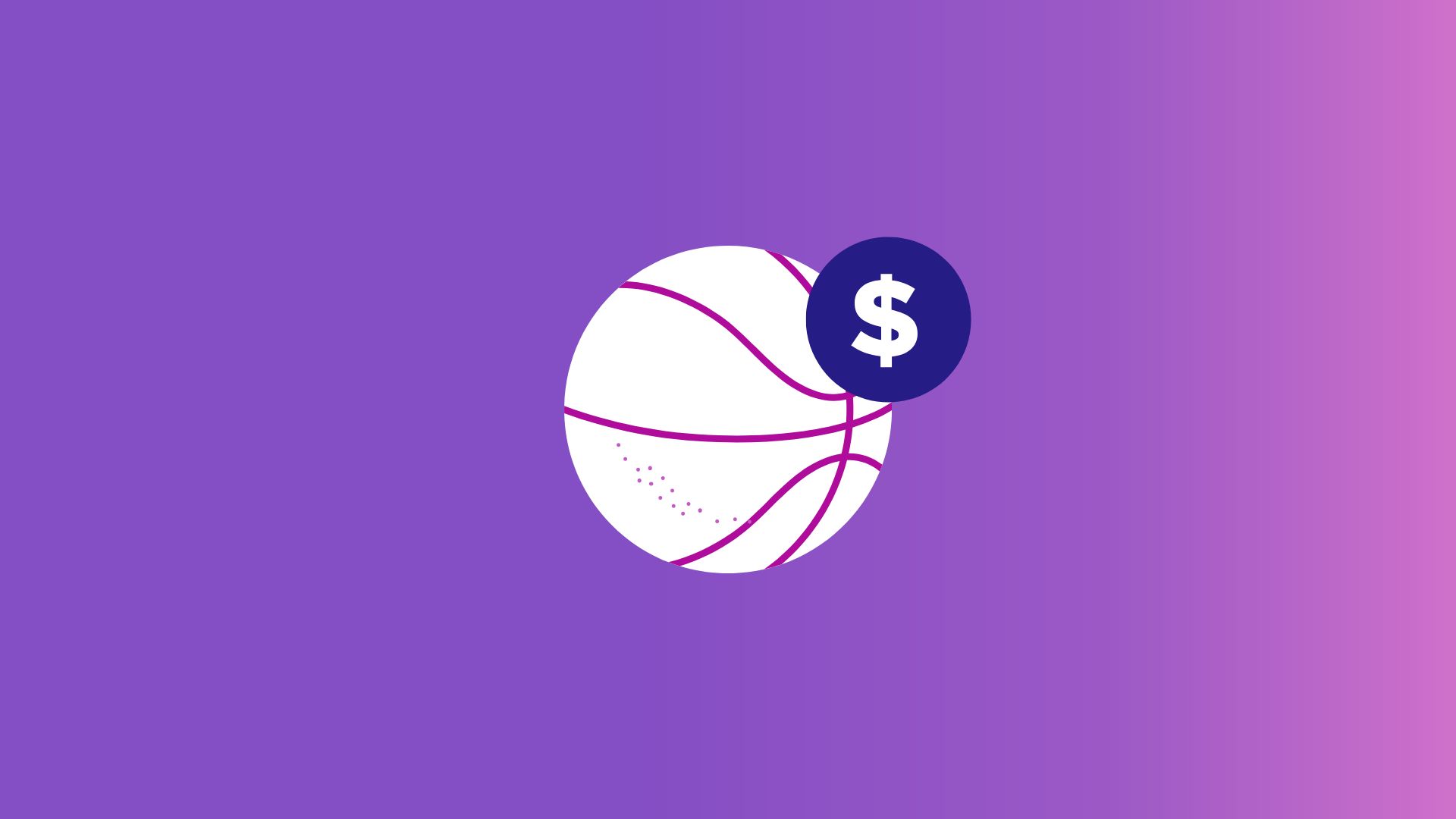Top 10 SEO Tips for Sports Websites and Blogs in 2025

It is highly likely that thousands of people search for products related to your niche every day. According to InternetLiveStats, Google processes 84.000 search queries every second!
To sum up, paraphrasing the iconic song Sweet Dreams, by Europhonics: ‘Everybody’s looking for something’!
Sports are no exception. People play sports, watch sports and bet on sports. Football, soccer, and basketball teams get thousands of retweets every time they make a new post. It’s a bubbly exciting world: perhaps too overcrowded with competitors, we’d say?
It is not easy to create a sports team website that is successful, mostly due to heavy competition. Most media sources around the globe have their own sports section and they dominate the first page of Google queries on general broad sports keywords.
Why is it so important for your sports website to rank high on Search Engines?
You want to attract people to read your articles and check your website’s products. Generating traffic will bring sponsors, clients, subscribers, and other opportunities that allow your business to grow.
However, just like in any sport: you have to define goals that you are looking to target. Are you looking to improve your sales? Lower the bounce rate so you have more returning visitors? Overtake a competitor’s first place in the sports SEO ranks for a specific keyword?
Defining goals is crucial because if you aim for a specific target you are more likely to score than if you shoot randomly. You might be lucky and get a breakthrough, but the wisest choice is to know exactly what you are looking for.
So, without further ado, here are Fortis Media top 10 tips for you to improve your sports website SEO rankings:
1. Find your niche
One of the most important reasons why we ask you what are your goals is that they are directly correlated to your niche. If you have a broad sports website and you just try to rank for the keyword: sports or sports betting, that quest will be nearly impossible.
Mainstream media and gambling pages are way ahead of you on that game and it is unlikely you can compete on that league.
Check our whitepaper that analyzes the most popular online betting brands and their SEO strategies.
However, if you offer products for specific sports or teams, you can target the fans of those niches. For example, check out the keyword related to the English soccer team Manchester United:

By using Ahrefs Keywords Explorer tool, you can search the relevant niche you are targetting and look for keyword opportunities where you can rank higher easily. In the image above you can see that ‘man utd transfer news‘ has 30k traffic volume, which means 17.000 people search for it monthly. Meanwhile, ‘manchester united news’ has a higher traffic volume, but the keyword difficulty is substantially higher.
So, if you are a starting business trying to rank on a specific niche you should look into keywords that fall under our first example: a medium or high traffic volume with low keyword difficulty is exactly what you should aim for.
2. Make Your Website Mobile-Friendly
Do you know that during the first quarter of 2020, 51.92% of the internet’s traffic worldwide came from mobile devices? On Google, the numbers are even higher, with 60% of all internet searches coming from mobile gadgets.
If your website is not compatible with all smartphones or its design is just not mobile-friendly, you are likely to lose half of your potential clients.
That’s why it is fundamental to make sure that you are using a mobile compatible theme on your page and that all your website functionalities are available on the mobile version. This is not only a SEO tip for sports blogs, but for all kinds of websites who have the intention to increase their ranks.

Credits: Statista.com
3. Optimize your page speed
As important as improving your sports site SEO, optimizing your page’s speed is crucial to obtain better results. 40% of the users abandon the web page if it takes more than 3 seconds to load.
With the eagerly competitive online sports market, you can’t allow yourself to lose such a high number of potential clients due to slow loading.
If you are a developer or you have developers working for you, make sure to put on the first order of business the decrease of loading time.
Also, small things like JPEG images instead of PNG or larger formats, help to increase the website speed. The heavier the media on your page (images, videos, etc), the more time it will take to load.

4. Use Structured Data on Your Sports Website
Title tags are very important, as they are clickable headlines on the Search Engines. So, before you make a new piece of content, think about structuring it in a way that contains a hierarchy of titles.
H1 title should be the main title of your article or piece of content. It should contain the keyword you are trying to rank for, as it will give SERPS (Search Engines) the information on the most relevant subject of your page.
Inside the article, you should define topics to create a hierarchy of subtitles. They should be numbered as h2, h3, h4, h5, etc. A useful tool to help you do this task successfully is Yoast SEO, a plugin that you can install in WordPress and easily manage your content’s structure.

5. Publish High-Quality Content
You probably think that in order to get better rankings and increase your audience you need to make a new article post every day. This is actually wrong.
In fact, there is no correlation between both factors, and overflowing your website with content is useless if your content is too short and poorly written.
So, invest instead on improving the content you already have and that is already ranking. Every time you refresh your content with new pieces of information or new hyperlinks, Google and other SERPs receive the information that your content is new.
SEO expert Neil Patel has recently said how he produces 10 pieces of content per month but refreshes 90 of his old articles per day.
Besides updating your old sports website blogposts daily, you should also make sure your content is authentic, original, and informative. Avoid plagiarizing other pages, as that IS NOT a good strategy to improve the SEO for sports blogs. Your content should also have the proper hierarchy and structure as we mentioned.
Finally, you might be wondering what is the average number of words your content should have. There is not a specific answer, as it depends on what kind of content you are producing. Although Google says that word count is not a ranking factor, long content (2500 words on average) seems to rank higher than short posts.
Just think about this: you can insert more links on long posts than short ones, which will come in handy as we will explain to you below.
6. Delete web pages that you don’t use
From a SEO perspective, deleting lots of the webpages inside of your sports blog is not always a good idea. Google can punish you with reduced rankings if you decide to delete several webpages.
However, it is likely you got some dead URLs and those might be affecting your page’s loading speed. As we mentioned above, loading speed is an essential feature that your website must have optimized.
There are two ways to deal with deadweight pages: you can redirect or kill them.
Redirecting means that once the viewer enters that page it will immediately take it to an active one. There are many kinds of redirects, with the most common being the 301. Read more about that here.
Killing a page means that you will send a message to Google and other search engines that you have deleted that page from existence. There are 2 ways of killing a page: with a 410 or a 404.
The most indicated way is 410. When you do a 410 you purge the page and Google immediately knows that it should be removed from its index.
Meanwhile, the 404 do not always get deleted from Google, but get buried in their archives. It’s that sort of page that you will find saying ‘404 URL: page not found’. Make sure that if you have 404 URLs on your sports website, they contain a link to the homepage so the user can return to navigate safely on your content. A search bar is also helpful in this situation.
7. Link to other web pages and websites
Inserting hyperlinks to credible sources on your content will help boost your sports blog SEO rankings. So, make sure to have plenty of “Click here” links, but do not place them randomly. They should fit into the context and help people expand their insight on a specific subtopic.
You should also add hyperlinks for your ‘call to action’ pages. If you add your website contacts, services or about us, chances are that people will click on it easily, instead of looking back at the top or bottom of the page.
You can also hyperlink to older pieces of content on your website, which will help those static older pages to remain fresh and grow on traffic.
8. Earn relevant and authoritative backlinks
The same way you post links of different sources on the web to give credibility to your article, every time some other page does the same with any of your links it will boost your rankings. Backlinks are necessary to improve the SEO of sports teams and sports team websites.
If the backlink directing to your page on that other website has a specific keyword that you are trying to rank for, then it’s even better. That’s why keyword research comes in handy while optimizing your sports team website.
Fortis Media makes that off-site SEO work for you, searching for pages with enough credibility where you can place backlinks. We also do the keyword research, to save you time and help your sports team website to improve its ranks.
9. Leverage Social Media
The power of social media should not be underestimated. According to BrandWatch, 54% of Twitter users have answered they took action after seeing a brand mentioned in Tweets.
If you open Facebook, Twitter, or Instagram and go to the pages of brands you love, you will see that their social media engagement is part of their success.

Experts say that you should make a daily post on each of the 3 main social media platforms (Twitter, Facebook and Instagram) and have icons for your social media pages visible on your sports blog.
You should, however, not abuse it. 3 or more tweets or Facebook posts per day will make you look desperate and you will lose engagement.
10. Do NOT forget meta-descriptions
Last, but not the least, you should always make sure that all the pages on your website have updated meta-descriptions. If you are not familiar with the concept of meta-description it is simply the little text under your title, that shows up every time you look for something on SERPs.
Despite Google claiming that meta-descriptions do not impact SEO rankings, they can indeed affect the click-through-rate. This means that a user is more likely to click on your page if the description is informative and explicit on the page’s content.
There are plenty of plugins on WordPress where you can easily edit your page’s meta-descriptions, including Yoast SEO, that we referred to before. Meta-descriptions should summarize the content of your article, without spoiling it completely.
They should also have a maximum of 120 characters and contain relevant keywords for which your sports blog website is trying to rank.
Is this all you need to create a successful sports team website?
These are 10 tips to help increase your sports site SEO. However, there are many more factors to have into account: and we can help you find solutions for your sports website problems and we also provide SEO tips for casino and betting businesses.
Fortis Media agency is always focused on obtaining the best results for its clients and we welcome you to work with us, so we can help you achieve your goals faster.
Read our other articles

Benefits of Enterprise SEO: Why Large-Scale Businesses Need It


B2B SaaS SEO: Best Practices and Strategy for 2025


Top 5 Trends for Enterprise SEO in 2025






